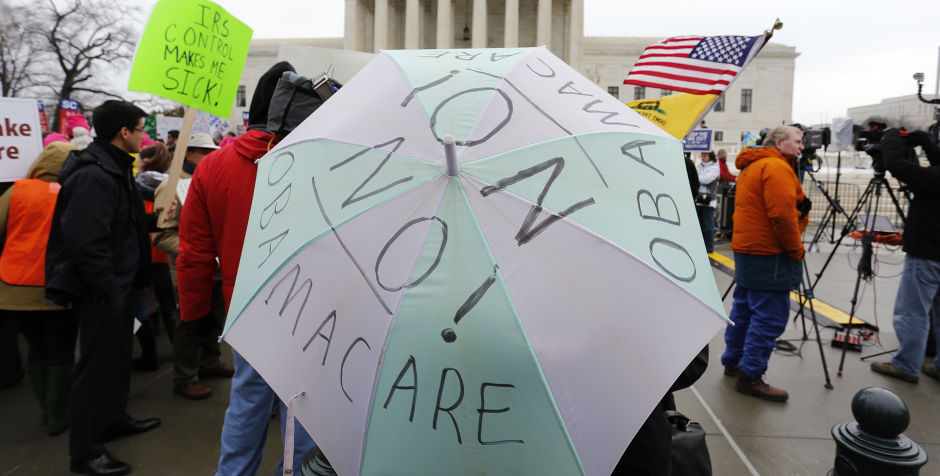The HHS Mandate Challenge: Where We Are and Where We Go From Here
As we approach the one year anniversary of the Hobby Lobby decision, where the Supreme Court held that the HHS Mandate violated the religious liberties of business owners, it’s clear that the struggle to vindicate religious freedom and the right to conscience is far from over. Having said that, recent signs give one hope for the future.
The HHS Mandate – or abortion-pill mandate – was first promulgated several years ago over the dissenting voices of religious leaders from different denominations and faiths and in direct contravention of the will of the American people. It mandates that all non-exempt health plans provide, without cost sharing, abortion-inducing drugs, contraception, sterilization, and related counseling. If an employer doesn’t arrange for these drugs and services to be included in a health plan, and foot the bill for their costs, the employer faces a sizable and substantial penalty: $100 per day per employee -- $36,500 per year, per employee. That is a staggering and ruinous penalty for the business owner who religiously objects to complying with the Mandate. (Two of our clients, Frank and Phil Gilardi, owners of Freshway Foods, faced an annual penalty of 14 million dollars to act consistent with their conscience.)
Large and small employers across the country did not take this assault on their religious beliefs lying down. Beginning with the ACLJ case, O’Brien v. Sebelius, the first challenge to the Mandate by a for-profit business and its owner, 49 lawsuits involving 193 plaintiffs were filed in federal courts. As these cases made their way through the appeals process, the courts of appeal handed down a variety of conflicting opinions. One court held that the Mandate imposed a substantial burden on the owners of the companies, but not the companies themselves; another held that the Mandate imposed a burden on the companies and the owners; and some courts held that the Mandate didn’t impose a substantial burden at all. In light of these contradictory decisions, the Supreme Court was compelled to intervene.
The Supreme Court’s holding in Hobby Lobby was simple and straightforward: because the Mandate imposed a substantial burden on religious exercise and was not the least restrictive means of serving a governmental interest, “[t]he contraceptive mandate, as applied to closely held corporations, violates RFRA.” (“RFRA” is the federal Religious Freedom Restoration Act that prohibits the federal government from taking any action that substantially burdens the exercise of religion unless that action constitutes the least restrictive means of serving a compelling government interest.)
For those who think that religious liberty not only includes the the right to have a religious belief, but the right to act according to that religious belief, Hobby Lobby was a tremendously important decision. As noted in our Hobby Lobby amicus brief, James Madison, the Father of the Constitution, opined: an individual “has a property of peculiar value in his religious opinions, and in the profession and practice dictated by them.”
While the for-profit challenges against the Mandate were proceeding in the courts at a rapid pace, ultimately arriving at the Supreme Court for a final decision, another front was also moving forward: the challenge to the Mandate by a host of various religious non-profit groups, including the Nashville Dominicans, the Little Sisters of the Poor, Christian colleges and schools, and other faith-based entities. On one day alone, May 21, 2012, forty-three dioceses, hospitals, schools, and other Catholic charities filed suit in twelve different legal actions in federal courts.
The non-profit challenges to the Mandate involve an issue not present in the for-profit challenges: a so-called “accommodation” to complying with the Mandate. This “accommodation,” explained in more detail here, is hardly that. Under the Administration’s scheme, while non-profit groups need not directly pay for the abortion-inducing drugs themselves, they must still take affirmative steps that directly implicate them in what they believe to be moral wrong-doing. Though the Administration is vigorously arguing that its proposed “accommodation” obviates any substantial burden on religious exercise, the Hobby Lobby Court made clear that “the circumstances under which it is wrong for a person to perform an act that is innocent in itself but that has the effect of enabling or facilitating the commission of an immoral act by another,” is a “difficult and important question of religion and moral philosophy” that the courts have no business deciding.
Earlier this week, the Supreme Court made it crystal clear -- again -- that it wants its decision in Hobby Lobby to be taken seriously by the lower courts. On Monday, the Supreme Court granted the cert petition filed by the Michigan Catholic Conference, the Nashville Dominicans and others that sought review of a decision of the Sixth Circuit ruling in favor of the government and its “accommodation.” Instead, however, of choosing to hear the case itself, the high court sent the case back to the Sixth Circuit to reconsider its decision in light of Hobby Lobby. (The Sixth Circuit’s decision was handed down just days prior to the Supreme Court deciding Hobby Lobby.)
This is the second time in a matter of months that the Supreme Court has vacated a lower court decision ruling in favor of the Administration’s Mandate. As explained here, on March 9, the Court vacated the Seventh Circuit’s judgment against Notre Dame University. As it did with the Sixth Circuit, the Supreme Court instructed the Seventh Circuit to reconsider its decision according to the principles set forth in Hobby Lobby.
These recent decisions by the Supreme Court are a hopeful sign that it is poised to uphold the religious civil liberties of non-profit groups should the lower courts not correctly resolve the matter themselves. Whether this hope becomes reality, however, remains to be seen. In the meantime, we will continue to keep you posted as the ongoing challenges against the Mandate move forward.
